Ada, or Ardor: A Family Chronicle Vladimir NabokovPublished two weeks after his seventieth birthday, Ada, or Ardor is one of Nabokov's greatest masterpieces, the glorious culmination of his career as a novelist. It tells a love story troubled by incest. But more: it is also at once a fairy tale, epic, philosophical treatise on the nature of time, parody of the history of the novel, and erotic catalogue. Ada, or Ardor is no less than the supreme work of an imagination at white heat.
This is the first American edition to include the extensive and ingeniously sardonic appendix by the author, written under the anagrammatic pseudonym Vivian Darkbloom.The Annotated Lolita: Annotated edition Vladimir NabokovWhen "Lolita" was first published in 1955 it created a sensation and established Nabokov as one of the most original prose writers of the twentieth century. This annotated edition, a revised and considerably expanded version of the 1970 edition, does full justice to the textual riches of "Lolita", illuminating the elaborate verbal textures and showing how they contribute to the novel's overall meaning. Alfred Appel, Jr. also provides fresh observations on the novel's artifice, games and verbal patternings and a delightful biographical vignette of Nabokov. The annotations themselves were prepared in consultation with Nabokov while newly identified allusions were confirmed by him during the final years of his life.The Defense Vladimir NabokovNabokov's third novel, The Luzhin Defense, is a chilling story of obsession and madness. As a young boy, Luzhin was unattractive, distracted, withdrawn, sullen—an enigma to his parents and an object of ridicule to his classmates. He takes up chess as a refuge from the anxiety of his everyday life. His talent is prodigious and he rises to the rank of grandmaster—but at a cost: in Luzhin' s obsessive mind, the game of chess gradually supplants the world of reality. His own world falls apart during a crucial championship match, when the intricate defense he has devised withers under his opponent's unexpected and unpredictabke lines of assault.Fuoco Pallido Vladimir NabokovInsomniac Dreams: Experiments with Time by Vladimir Nabokov Vladimir Nabokov, Gennady BarabtarloNabokov's dream diary, published for the first time―and placed in biographical and literary context
On October 14, 1964, Vladimir Nabokov, a lifelong insomniac, began a curious experiment. Over the next eighty days, immediately upon waking, he wrote down his dreams, following the instructions he found in An Experiment with Time by the British philosopher John Dunne. The purpose was to test the theory that time may go in reverse, so that, paradoxically, a later event may generate an earlier dream. The result―published here for the first time―is a fascinating diary in which Nabokov recorded sixty-four dreams (and subsequent daytime episodes) on 118 index cards, which afford a rare glimpse of the artist at his most private. More than an odd biographical footnote, the experiment grew out of Nabokov’s passionate interest in the mystery of time, which influenced many of his novels, including the late masterpiece Ada.
Insomniac Dreams, edited by leading Nabokov authority Gennady Barabtarlo, presents the text of Nabokov’s dream experiment, illustrated with a selection of his original index cards, and provides rich annotations and analysis that put them in the context of his life and writings. The book also includes previously unpublished records of Nabokov’s dreams from his letters and notebooks and shows important connections between his fiction and private writings on dreams and time.Lectures on Don Quixote Vladimir NabokovLectures on Literature Vladimir NabokovLectures on Literature Vladimir Nabokov, Fredson BowersFor two decades, first at Wellesley and then at Cornell, Nabokov introduced undergraduates to the delights of great fiction. Here, collected for the first time, are his famous lectures, which include Mansfield Park, Bleak House, and Ulysses. Edited and with a Foreword by Fredson Bowers; Introduction by John Updike; illustrations.Lectures on Russian Literature Vladimir NabokovThe author’s observations on the great nineteenth-century Russian writers-Chekhov, Dostoevsky, Gogol, Gorky, Tolstoy, and Turgenev. “This volume... never once fails to instruct and stimulate. This is a great Russian talking of great Russians” (Anthony Burgess). Edited and with an Introduction by Fredson Bowers; illustrations.Letters to Véra Vladimir NabokovThe letters of the great writer to his wife—gathered here for the first time—chronicle a decades-long love story and document anew the creative energies of an artist who was always at work.
No marriage of a major twentieth-century writer is quite as beguiling as that of Vladimir Nabokov’s to Véra Slonim. She shared his delight in life’s trifles and literature’s treasures, and he rated her as having the best and quickest sense of humor of any woman he had met. From their first encounter in 1923, Vladimir’s letters to Véra form a narrative arc that tells a half-century-long love story, one that is playful, romantic, pithy and memorable. At the same time, the letters tell us much about the man and the writer. We see the infectious fascination with which Vladimir observed everything—animals, people, speech, the landscapes and cityscapes he encountered—and learn of the poems, plays, stories, novels, memoirs, screenplays and translations on which he worked ceaselessly. This delicious volume contains twenty-one photographs, as well as facsimiles of the letters themselves and the puzzles and doodles Vladimir often sent to Véra.Lolita Vladimir NabokovIntroduction by Martin AmisLook at the Harlequins! Vladimir NabokovMary Vladimir NabokovMary is a gripping tale of youth, first love, and nostalgia—Nabokov's first novel. In a Berlin rooming house filled with an assortment of seriocomic Russian émigrés, Lev Ganin, a vigorous young officer poised between his past and his future, relives his first love affair. His memories of Mary are suffused with the freshness of youth and the idyllic ambience of pre-revolutionary Russia. In stark contrast is the decidedly unappealing boarder living in the room next to Ganin's, who, he discovers, is Mary's husband, temporarily separated from her by the Revolution but expecting her imminent arrival from Russia.Nabokov: Novels 1955-1962: Lolita / Pnin / Pale Fire Vladimir NabokovThe second in Library of America's three-volume collection of Vladimir Nabokov's novels, Novels 1955-1962 contains his most acclaimed and popular works. The short, often anthologized Pnin is included, as is Pale Fire, Nabokov's most elaborate fictional joke: it's a novel masquerading as a 999-line poem accompanied by a professorial pedant's extensive annotations. But this deluxe volume is most valuable for its inclusion of Lolita alongside the screenplay that Nabokov wrote for Stanley Kubrick. Kubrick's film is quite different from the version Nabokov intended, and Novels 1955-1962 offers the opportunity to compare Lolita's two Nabokovian incarnations with Kubrick's film and with the recent, very controversial movie directed by Adrian Lyne and starring Jeremy Irons.Nabokov: Novels, 1969-1974 Vladimir Nabokov, Brian BoydNabokov's Quartet Vladimir NabokovNikolai Gogol Vladimir NabokovNikolai Gogol was the most idiosyncratic of the great Russian novelists of the 19th century and lived a tragically short life which was as chaotic as the lives of the characters he created.This biography begins with Gogol's death and ends with his birth, an inverted structure typical of both Gogol and Nabokov. The biographer proceeds to establish the relationship between Gogol and his novels, especially with regard to "nose-consciousness", a peculiar feature of Russian life and letters, which finds its apotheosis in Gogol's own life and prose. There are more expressions and proverbs concerning the nose in Russian than in any other language in the world. Nabokov's style in this biography is comic, but as always leads to serious issues—in this case, an appreciation of the distinctive "sense of the physical" inherent in Gogol's work. Nabokov describes how Gogol's life and literature mingled, and explains the structure and style of Gogol's prose in terms of the novelist's life.The Original of Laura Vladimir NabokovWhen Vladimir Nabokov died in 1977, he left instructions for his heirs to burn the 138 handwritten index cards that made up the rough draft of his final and unfinished novel, The Original of Laura. But Nabokov’s wife, Vera, could not bear to destroy her husband’s last work, and when she died, the fate of the manuscript fell to her son. Dmitri Nabokov, now seventy-five—the Russian novelist’s only surviving heir, and translator of many of his books—has wrestled for three decades with the decision of whether to honor his father’s wish or preserve for posterity the last piece of writing of one of the greatest writers of the twentieth century. His decision finally to allow publication of the fragmented narrative—dark yet playful, preoccupied with mortality—affords us one last experience of Nabokov’s magnificent creativity, the quintessence of his unparalleled body of work.
Photos of the handwritten index cards accompany the text. They are perforated and can be removed and rearranged, as the author likely did when he was writing the novel.
From the Hardcover edition.Pale Fire: A Poem in Four Cantos by John Shade Vladimir Nabokov, R. S. Gwynn, Brian BoydMany think Pale Fire Vladimir Nabokov's greatest novel. At its heart beats the 999-line poem, Pale Fire, penned by the distinguished American poet John Shade. This first-ever facsimile edition of the poem shows it to be not just a fictional device but a masterpiece of American poetry, albeit by an invented persona — the greatest of invented poets, according to Nabokov's own accurate evaluation. In the novel Shade's mad neighbor, Charles Kinbote, absconds with the index-card manuscript of the poem, compiling an ostensible line-by-line commentary that largely ignores Shade's text and heeds only his own egotism. Kinbote's commentary, the bulk of the novel, is an insane comic triumph of would-be romantic self-celebration that cannot quite mute its undertones of desperation. But here we rescue Pale Fire from the madman's hand to show the magician's sleight of hand, and the enchantment, in Nabokov's most ambitious poem.
Renowned Nabokov authority Brian Boyd brilliantly explains Pale Fire on its and Shade's own terms, showing how its texture compares with Shakespeare's sonnets at their best. Poet R.S. Gwynn sets it in the context of American poetry of its time. Artist Jean Holabird, who conceived the project, illustrates key details of the poem's pattern and pathos.
Now readers can see the text for themselves, fresh from Shade s hands, before Kinbote commandeered it so shamelessly.
This attractive box contains two booklets the poem Pale Fire in a handsome pocket edition and the book of essays by Boyd and Gwynn as well as facsimiles of the index cards that John Shade (like his maker, Nabokov) used for composing his poem, printed exactly as Vladimir Nabokov described them.Pnin Vladimir Nabokov(Book Jacket Status: Jacketed)
One of the best-loved of Nabokov’s novels, Pnin features his funniest and most heart-rending character. Professor Timofey Pnin is a haplessly disoriented Russian émigré precariously employed on an American college campus in the 1950s. Pnin struggles to maintain his dignity through a series of comic and sad misunder-standings, all the while falling victim both to subtle academic conspiracies and to the manipulations of a deliberately unreliable narrator.
Initially an almost grotesquely comic figure, Pnin gradually grows in stature by contrast with those who laugh at him. Whether taking the wrong train to deliver a lecture in a language he has not mastered or throwing a faculty party during which he learns he is losing his job, the gently preposterous hero of this enchanting novel evokes the reader’s deepest protective instinct.
Serialized in The New Yorker and published in book form in 1957, Pnin brought Nabokov both his first National Book Award nomination and hitherto unprecedented popularity.Selected Poems Vladimir NabokovThough we know Vladimir Nabokov as a brilliant novelist, his first love was poetry. This landmark collection brings together the best of his verse, including many pieces that have never before appeared in English.
These poems span the whole of Nabokov’s career, from the newly discovered “Music,” written in 1914, to the short, playful “To Véra,” composed in 1974. Many are newly translated by Dmitri Nabokov, including The University Poem, a sparkling novel in verse modeled on Pushkin’s Eugene Onegin that constitutes a significant new addition to Nabokov’s oeuvre. Included too are such poems as “Lilith”, an early work which broaches the taboo theme revisited nearly forty years later in Lolita, and “An Evening of Russian Poetry”, a masterpiece in which Nabokov movingly mourns his lost language in the guise of a versified lecture on Russian delivered to college girls. The subjects range from the Russian Revolution to the American refrigerator, taking in on the way motel rooms, butterflies, ice-skating, love, desire, exile, loneliness, language, and poetry itself; and the poet whirls swiftly between the brilliantly painted facets of his genius, wearing masks that are, by turns, tender, demonic, sincere, self-parodying, shamanic, visionary, and ingeniously domestic.The Stories of Vladimir Nabokov Vladimir NabokovHere, for the first time, are 65 stories—13 of which have never before been published in book form—by one of the 20th century's great prose stylists collected in one elegant volume. Written from the early 1920s to the mid-1950s, these stories will remind readers that they are in the company of a great original, a literary master. Edited by his son and translator.Think, Write, Speak: Uncollected Essays, Reviews, Interviews, and Letters to the Editor Vladimir Nabokov, Brian Boyd, Anastasia TolstoyA rich compilation of the previously uncollected Russian and English prose and interviews of one of the twentieth century's greatest writers, edited by Nabokov experts Brian Boyd and Anastasia Tolstoy
"I think like a genius, I write like a distinguished author, and I speak like a child": so Nabokov famously, and infamously, wrote when introducing his 1973 volume of selected prose, Strong Opinions. Think, Write, Speak follows up where Strong Opinions left off, presenting Nabokov's public writings from a 1921 essay about Cambridge to two last interviews in 1977. The chronological order allows us to watch the Cambridge student and the fledgling Berlin reviewer and poet turn into the acclaimed Paris émigré novelist whose stature would bring him to teach and write in America, where his international success exploded with Lolita and propelled him back to Europe as a recognized literary master. Straddling Russian, French and Anglophone worlds, Nabokov discovers contemporary literature and culture at his own pace and with his own strong dispositions. Whether his subject is Proust or Pushkin, the sport of boxing or the privileges of democracy, Nabokov's supreme individuality and his alertness to the details of life past and present illuminate the page and remind us why he has been called the greatest of prose stylists.The Tragedy of Mister Morn Vladimir NabokovFor the first time in English, Vladimir Nabokov’s earliest major work, written when he was only twenty-four: his only full-length play, introduced by Thomas Karshan and beautifully translated by Karshan and Anastasia Tolstoy.
The Tragedy of Mister Morn was written in the winter of 1923–1924, when Nabokov was completely unknown. The five-act play—the story of an incognito king whose love for the wife of a banished revolutionary brings on the chaos the king has fought to prevent—was never published in Nabokov’s lifetime and lay in manuscript until it appeared in a Russian literary journal in 1997. It is an astonishingly precocious work, in exquisite verse, touching for the first time on what would become this great writer’s major themes: intense sexual desire and jealousy, the elusiveness of happiness, the power of the imagination, and the eternal battle between truth and fantasy. The play is Nabokov’s major response to the Russian Revolution, which he had lived through, but it approaches the events of 1917 above all through the prism of Shakespearean tragedy.Verses and Versions: Three Centuries of Russian Poetry Selected and Translated by Vladimir Nabokov, Brian Boyd, Stanislav ShvabrinVladimir Nabokov was hailed by Salman Rushdie as the most important writer ever to cross the boundary between one language and another. A Russian émigré who began writing in English after his forties, Nabokov was a trilingual author, equally competent in Russian, English, and French. A gifted and tireless translator, he bridged the gap between languages nimbly and joyously.
Here, collected for the first time in one volume as Nabokov always wished, are many of his English translations of Russian verse, presented next to the Russian originals. Here, also, are some of his notes on the dangers and thrills of translation. With an introduction by Brian Boyd, author of the prize-winning biography of Nabokov, Verses and Versions is a momentous and authoritative contribution to Nabokov's published works.Vladimir Nabokov : Novels and Memoirs 1941-1951 : The Real Life of Sebastian Knight, Bend Sinister, Speak, Memory Vladimir Nabokov, Brian BoydAfter a brilliant literary career in Russian, Vladimir Nabokov came to the United States and went on to an even more brilliant one in English—earning a place as one of the greatest writers of his adopted home. Between 1941 and 1974 he published the autobiography and eight novels now collected by The Library of America in an authoritative three-volume set. "The Real Life of Sebastian Knight" is a tantalizing literary mystery in which a writer's half brother searches to unravel the enigma of the famous novelist's life. "Bend Sinister," Nabokov's most explicitly political novel, is the haunting, dreamlike story of a quiet philosophy professor caught up in the bureaucratic terror of a totalitarian police state. "Speak, Memory" is the dazzling memoir of Nabokov's childhood in imperial Russia amd exile in Europe. The texts in this volume have been corrected based on the author's own copies. Two companion volumes collect "Lolita," "Pnin," "Pale Fire," and "Lolita: A Screenplay," and "Ada," "Transparent Things," and "Look at the Harlequins!"Vladimir Nabokov: Selected Letters 1940-1977 Vladimir NabokovWaltz Invention Vladimir NabokovNabokov's Butterflies: Unpublished and Uncollected Writings Vladimir Vladimirovich Nabokov, Robert Michael Pyle, Brian BoydNewly translated works by Nabokov on the twin passions of his life, literature and lepidoptera. A rich array of never-before-seen Nabokovia: novels, stories, poems, autobiography, interviews, diaries, and more, plus scientific and fanciful drawings by Nabokov and photographs of him in the field. The text—the richest and most varied assemblage of Nabokov's writing's available—is arranged chronologically and introduced by Brian Boyd and Robert Michael PyleNabokov's Dozen Vladimir Vladimirovich NabokovTyrants Destroyed and Other Stories Vladimir Vladimirovich NabokovEugene Onegin: A Novel in Verse, Vol. 1 Aleksandr Sergeevich Pushkin"In an era of inept and ignorant imitations, whose piped-in background music has hypnotized innocent readers into fearing literality's salutary jolt, some reviewers were upset by the humble fidelity of my version. . . ." Such was Vladimir Nabokov's response to the storm of controversy aroused by the first edition of his literal translation of Eugene Onegin. This bold rendering of the Russian masterpiece, together with Nabokov's detailed and witty commentary, is itself a work of enduring literary interest, and reflects a lifelong admiration for Pushkin on the part of one of this century's most brilliant stylists.Eugene Onegin: A Novel in Verse, Vol. 2 Aleksandr Sergeevich Pushkin, Vladimir NabokovThis is the widely acclaimed translation of Russian literature's most seminal work. Pushkin's "novel in verse" has influenced Russian prose as well as poetry for more than a century. By turns brilliant, entertaining, romantic and serious, it traces the development of a young Petersburg dandy as he deals with life and love. Influeneced by Byron, Pushkin reveals the nature of his heroes through the emotional colorations found in their witty remarks, nature descriptions, and unexpected actions, all conveyed in stanzas of sonnet length (a form which became known as the Onegin Stanza), faithfully reproduced by Walter Arndt inthis Bollingen Prize translation. |
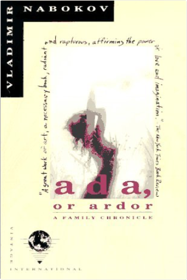
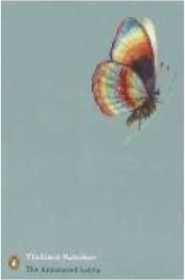
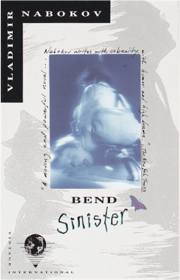
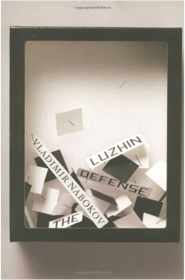
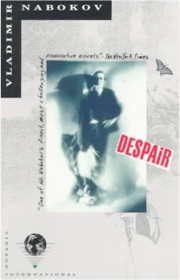
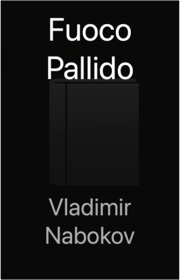
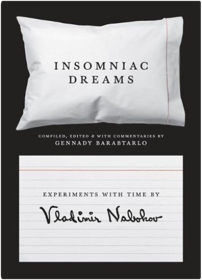
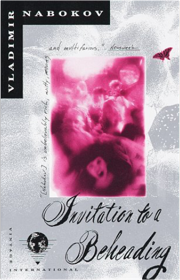
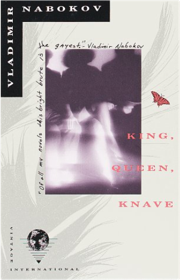
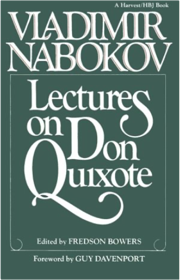
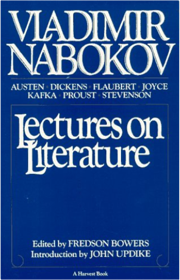
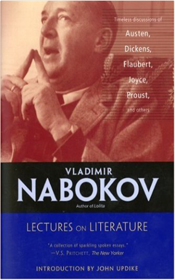
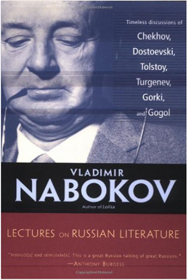
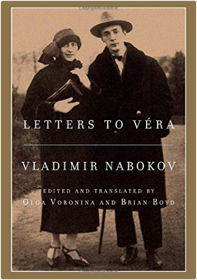
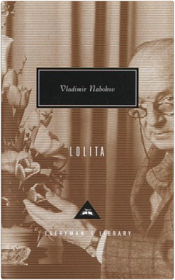
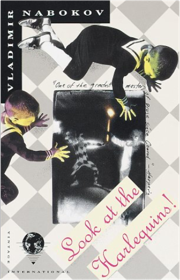
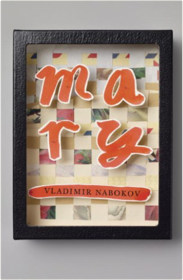
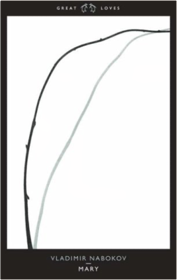
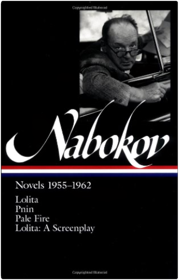
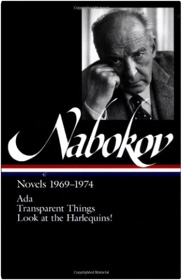
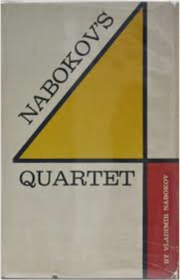
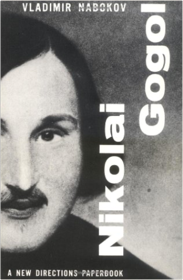
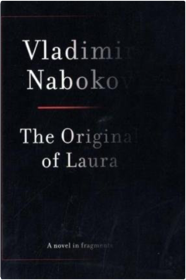
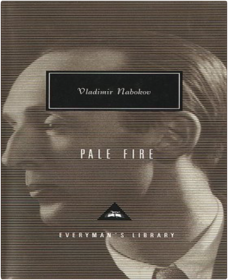
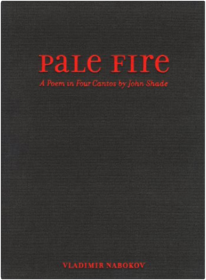
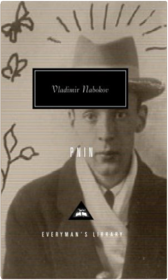
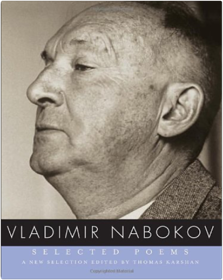
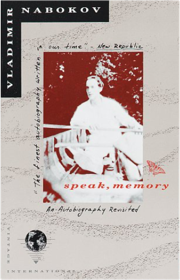
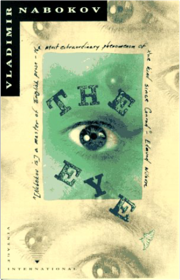
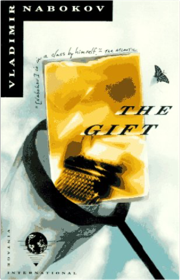
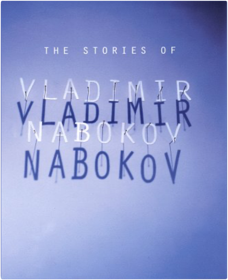
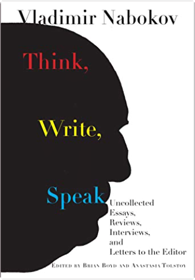
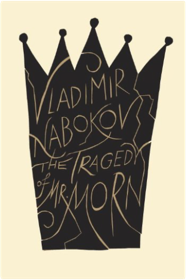
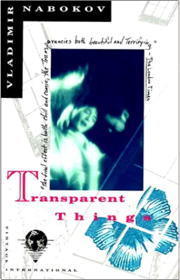
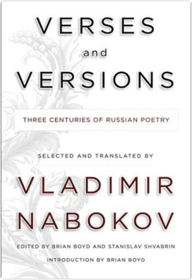
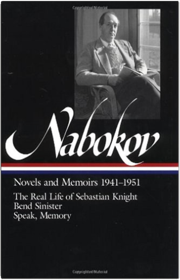
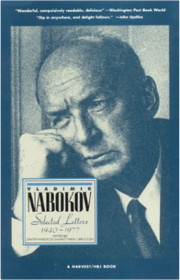
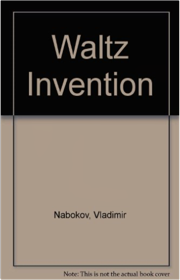
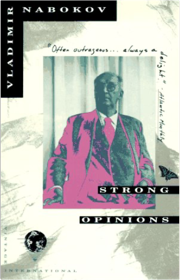
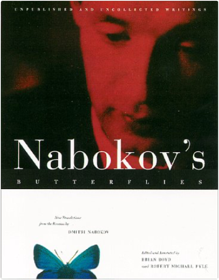
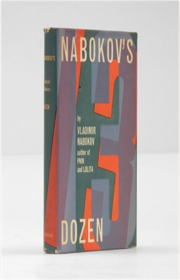
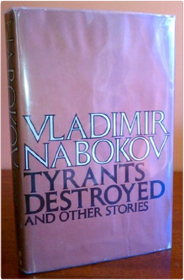
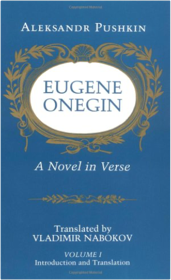
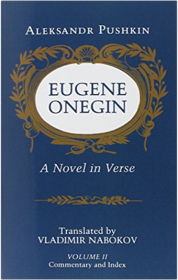




 Made with Delicious Library
Made with Delicious Library